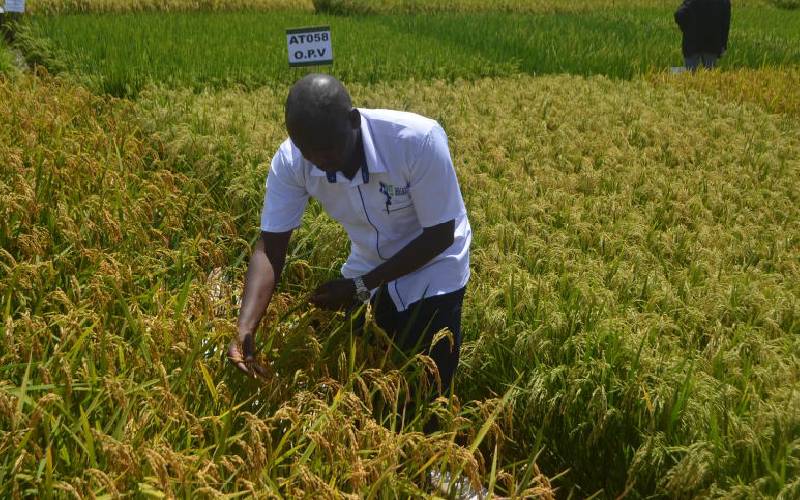×
The Standard e-Paper
Fearless, Trusted News

Stakeholders in the rice sector have come up with an elaborate plan to streamline the production of certified rice seeds and protect farmers against unscrupulous traders.
In a consultative forum, seed breeders, farmers, the Kenya Plants Health Inspectorate Services (KEPHIS), the National Irrigation Board and the Mwea Irrigation Agricultural Development Center (MIAD) came up with ways of ensuring that only quality seed are in the market.